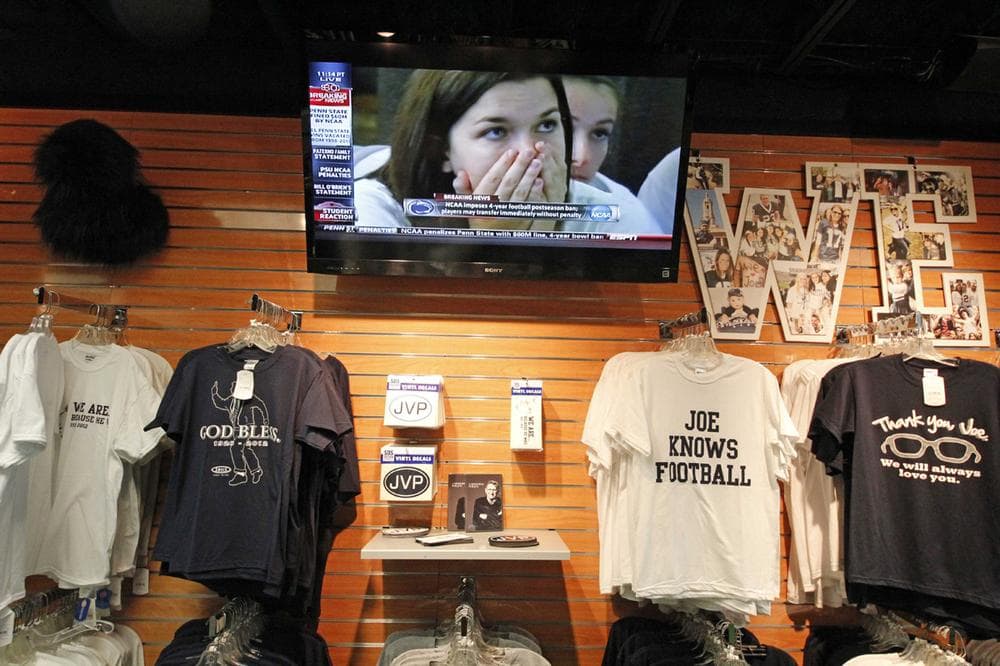Advertisement
Finding 'Fair' In Penn State's Fouls

On Monday, the NCAA imposed a $60 million fine and various sanctions against Penn State University football after an investigation found that former head coach Joe Paterno and others had not alerted authorities to former assistant coach Jerry Sandusky's child abuse. The penalties have inspired emotional debate.
But it's a challenge to talk about what's "fair" in the context of so much that has been so thoroughly foul.
Those who argue that the current so-called "student-athletes," a bogus term invented by the NCAA six decades ago, are being punished for something that wasn't their fault have a point. The players most recently recruited to play at Penn State didn't know Sandusky. They've never met the administrators who lied to the grand jury investigating Sandusky's felonies. Some of them probably had met Paterno, but lots of them certainly hadn't.
Far more "unfair" was what Jerry Sandusky did to the children he molested. It was also "unfair" for Sandusky's former bosses to enable his predatory behavior and to cover up his depredations. Their criminal attempt to spare the football program embarrassment was morally corrupt. It's indefensible.
As a result of the sanctions imposed by the NCAA, Penn State's student-athletes will have to find another place to recreate, unless they decide Penn State is still a fine place to go to school … and perhaps an even better place than it used to be, since for at least four years students will not be distracted by the presence of a bowl-bound football team and the lies of various alleged educators who've departed.
The NCAA could have decided to leave punishment to the courts and to those inclined to bring civil suits against the men who conspired to cover up Sandusky's crimes and enabled him to continue abusing and raping children. Had it done so, the NCAA would have forfeited whatever respect and authority it has. The "loss of institutional control" at Penn State was total and obscene. By passing the buck on that, the NCAA would have rendered itself irrelevant, irresponsible and impotent. Institutions rarely elect to go that route.
Given that it was going to act, the NCAA had to impose serious penalties. Otherwise we'd all be comparing the sanctions against Penn State to the penalties being served by football schools where the players sold their jerseys or pawned the laptops they'd stolen from their classmates. It need hardly be said that raping children and conspiring to cover up the crimes is different, but the NCAA had to say it.
Now some contend that the temporary dismantling of the Penn State football program is a tragedy. But the tragedy at Penn State is that those who could have stopped Jerry Sandusky, thereby earning the distinction of doing the right thing, failed in their obligations. Beyond the campus, the sad fact is that neither the NCAA nor anybody else is likely to do anything to change the culture of worship and entitlement that inclines big-time college athletic programs toward hypocrisy, dishonesty and, in Penn State's case, much worse.
This program aired on July 25, 2012. The audio for this program is not available.